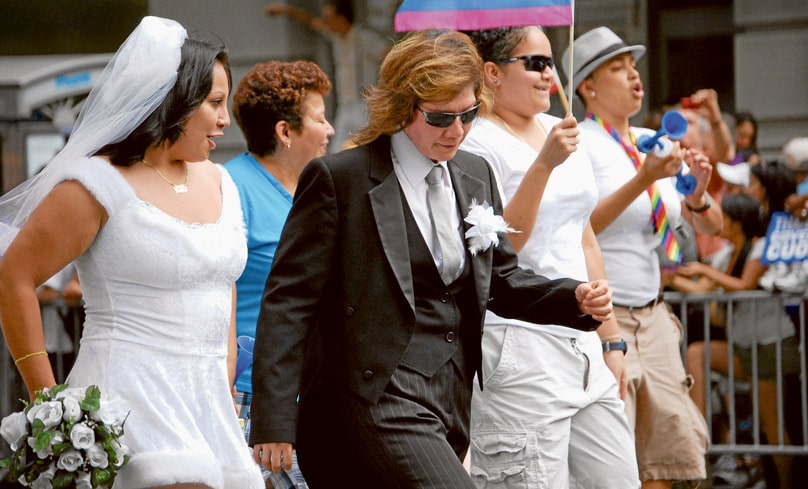
I imagine that many of you have engaged in, or at least read, some fairly heated online discussions about the same-sex marriage postal survey since it was announced three months ago.
When Archbishop Anthony Fisher OP posted his on Facebook, it attracted more than 7000 comments.
People on either side of the debate have been pretty vocal about their views and, aside from those who (like many of those who responded to Archbishop Fisher) use expletives and personal attacks to make their point, it is a good thing that we have been able to have this discussion so openly.
The slogan for the Coalition for Marriage, “It’s okay to say ‘no’,” became a self-fulfilling prophecy, as “no” voters realised that there were literally millions of people who shared their views and found their voice.
But what if this wasn’t the case? What if it wasn’t okay to say “no”? What if participating in a Facebook conversation on same-sex marriage was enough to have you suffer some pretty serious consequences?
We saw a bit of this type of backlash during this campaign, when Canberra teenager Madeline was fired for changing her profile picture to include the “it’s okay to say no” profile filter.
For Madeline, a simple Facebook post did have very bad consequences, but those far more competent in industrial relations and anti-discrimination law than I, have said that, if she chooses to pursue it, Madeline would likely be able to mount a successful case against her former employer.
That’s now, though. If same-sex marriage becomes legal, things will not be so certain, and we can see that most clearly in the United Kingdom.
On Friday of last week, the UK High Court handed down its decision in the matter of Felix Ngole.
For those unfamiliar with Ngole’s story, he entered into a Facebook debate about Kim Davis, the US county clerk who was imprisoned after refusing to sign marriage licences for same-sex couples on religious grounds. Ngole posted, “I stand with Kim Davis,” on Facebook and, as the discussion continued, went on to say: “the Bible and God identify homosexuality as a sin” and “same-sex marriage is a sin whether we like it or not. It is God’s words and man’s sentiments would not change His words.”
He also quoted Leviticus 18:22, which calls homosexual acts an abomination.
We can probably concede that this type of approach isn’t the most convincing way to express a view on same-sex marriage because of the number of people who don’t consider a Biblical view persuasive.
But irrespective of whether I agree with his methods, surely Ngole had a right to express his views?
Or maybe not.
After the Facebook post, Ngole was summoned to a meeting at Sheffield University, where he was studying social work.
He was told that he could no longer continue in his degree, because the views expressed by him on Facebook made him unfit to practise.
In the opinion of the university’s “fitness to practise” committee, holding and articulating a view about marriage which is held by billions of people worldwide, and quoting from the best-selling book of all time, was incompatible with being a social worker.
Ngole appealed to the UK High Court, which heard and ruled on his case last month.
Alarmingly, the court sided with the university, and Ngole’s expulsion from the university was upheld.
In her decision, Justice Rowena Collins Rice said:
“Public religious speech has to be looked at in a regulated context from the perspective of a public readership.”
I can’t overstate how important this is. A court has just ruled that in the United Kingdom, after the legalisation of same-sex marriage, “public religious speech has to be looked at in a regulated context.”
It seems that it is no longer permissible to express a faith-based view without some type of regulatory oversight.
Justice Collins Rice continued, saying that where universities “aspire to be welcoming environments for students from a diverse range of backgrounds, they must expect to be inclusive and supportive of that diversity.”
Unless you’re Christian, that is. An embrace of diversity does not include an embrace of Christianity.
Ngole didn’t break the law. What he posted wasn’t defamatory or threatening or illegal in any way.
Yet a court has found that complying with the law is insufficient to be protected by it, and a university is well within its rights to determine that those who espouse a Christian view of marriage are unfit to practise in certain areas of social services (which is ironic, given that Christianity has been the backbone of social welfare agencies across the world.)
My friends, this is a worrying sign. Over the coming week, let us pray that Australia will be preserved from this nonsense which a “yes” vote would certainly threaten.
